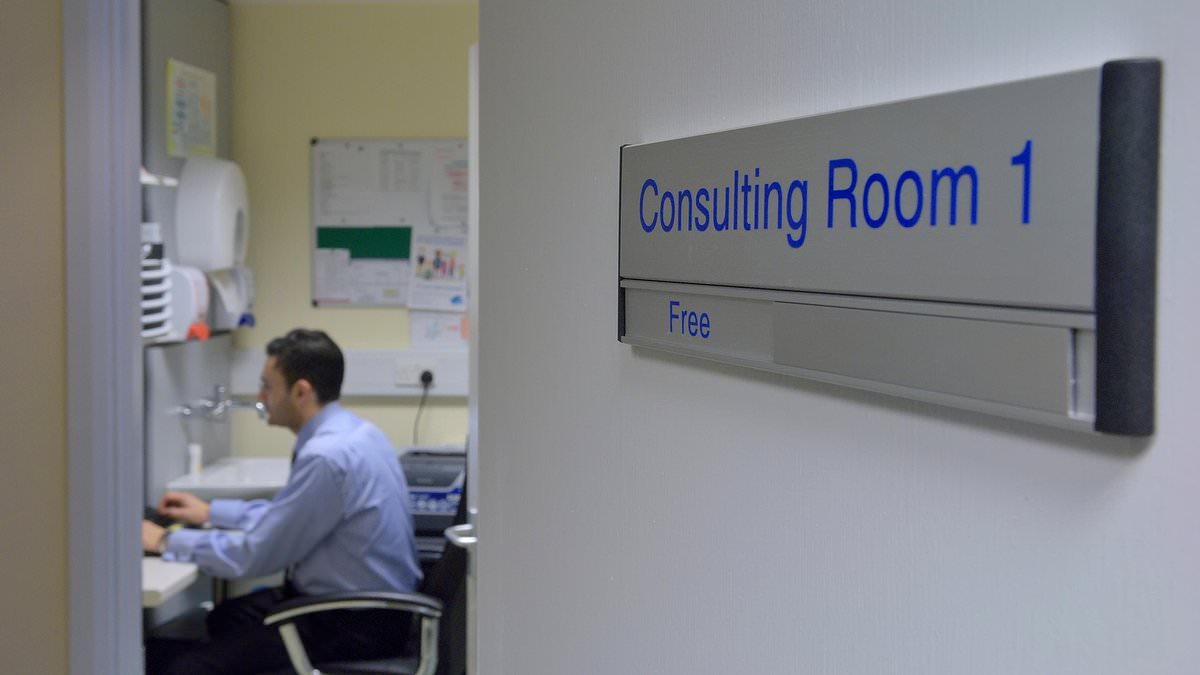
Britain’s GP crisis could be eased by letting doctors based in Singapore offer virtual appointments to patients, a think tank has claimed.
The Social Market Foundation (SMF) argued Singaporean medics would help cut out waste and inefficiency, and instead ‘rescue our beleaguered national health service’ from its ‘serious decline’.
Disgruntled patients have abandoned NHS surgeries in favour of going private amid the appointments crisis. Others have visited A&E instead, which campaigners argue has heaped extra pressure on swamped casualty units.
The SMF also argued ‘polyclinics’, where patients battling long-term conditions are treated by a team of doctors, nurses and health coordinators, would prove a cost-effective solution to tackling the post-Covid NHS backlog.
It claimed Singapore spends 4.4 per cent of its national income on healthcare – less than half as much as the UK – but ‘enjoys much better outcomes’.
Its infant mortality rate is also half of that in the UK, while its population has a lower obesity rate and higher life expectancy.
Given Brits are already using remote health services which involve Singaporean GPs, it would be a ‘natural’ next step to allow the medics to prescribe meds to patients in the UK, the SMF paper said.
Their practice also complies with the Public Hospitals and Medical Clinics Guidelines, ‘ensuring a high standard of medical care’, it added.
If the move was successful, the NHS could commission the service for rural areas, which suffer with limited local GP access.
Latest NHS figures show 17.6million appointments that took place in England in 2023 were booked one month earlier — or one in every 20.
It marks a rise of over a third in the space of a year.
Almost a fifth of appointments (17.5 per cent) were booked a fortnight in advance, a rise on the 15.2 per cent recorded in 2022.
Under the paper’s other recommendations, ‘polyclinics’ should also be established in parts of England with poorer access to primary care services.
These clinics would combine GP services with labs able to carry out diagnostic tests, and multidisciplinary teams who can care for those with chronic health conditions.
In his foreword to the paper, former health minister Lord Norman Warner, argued the ‘time has come to revisit these ideas and draw on the experience of Singapore’.
He added: ‘Politicians know radical change is necessary but are fearful of explaining what’s needed to their electorate.
‘Part of the trouble is they lack models they can draw on and cite as a way forward.’
‘Polyclinics’ were first introduced in the UK in 2008 when Lord Darzi, then health minister under Prime Minister Gordon Brown, attempted to set up ‘one-stop shops’ across the country.
But the plans were soon abandoned and the British Medical Journal branded them ‘costly white elephants’.
They were decommissioned under the coalition government.
According to the 2023 GP Patient Survey, a poll of 759,000 Brits, just seven in ten (71.3 per cent) described their overall experience of their GP practice as ‘good’ overall. Satisfaction has fallen to an all-time low.
Fewer than half of patients (49.8 per cent) also said they find it easy to get through to their GP practice on the phone, down from 52.7 per cent in 2022 and 80.8 per cent in 2012.
Under recommendations implemented by the BMA and European Union of General Practitioners, GPs in the UK today should not deliver more than 25 appointments a day to ensure ‘safe care’.
But some doctors are reportedly having to cram in nearly 90 patients a day in some areas amid an appointments crisis.
Nationally, there were 27,487 fully qualified, full-time equivalent GPs working in England in December, equating to one GP for every 2,078 patients, on average.
Health chiefs say the ratio of patients to every one fully qualified GP should never exceed 1,800.









